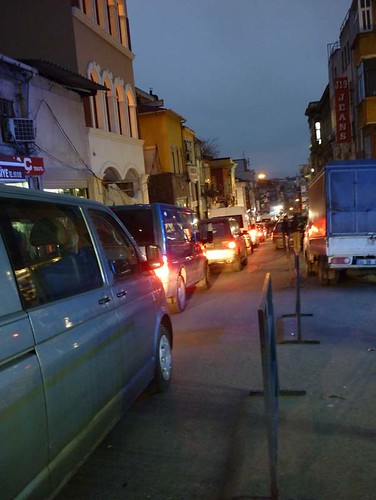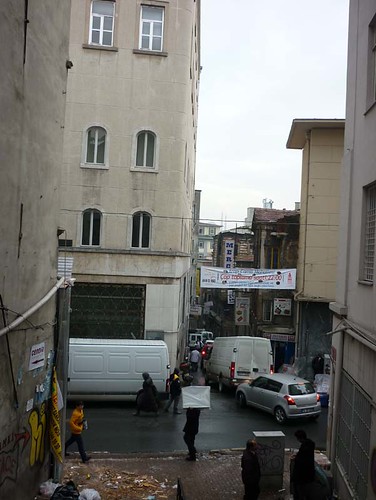Not that this is news we didn’t already know or have never heard about, but from the UN’s Global Report on Human Settlements 2011 – Cities and Climate Change comes this story published on BBC news online:
UN report: Cities ignore climate change at their peril
Here’s the basic premise:
Urban areas are set to become the battleground in the global effort to curb climate change, the UN has warned.
The assessment by UN-Habitat said that the world’s cities were responsible for about 70% of emissions, yet only occupied 2% of the planet’s land cover.
While cities were energy intensive, the study also said that effective urban planning could deliver huge savings.
The authors warned of a “deadly collision between climate change and urbanisation” if no action was taken.


I’m glad to see this get more exposure and for the UN to finally officially recognize the importance that cities and urban design will have to play in any meaningful effort to curb CO2 emissions. While the issue wasn’t even on the agenda a little over a year ago in Copenhagen I was pleased to see it at least addressed at last year’s conference in Cancun, where Marcelo Ebrard, Mayor of Mexico City and Chair of the World Mayors Council on Climate Change, was invited to speak at a high level panel.
It seems that Mr. Ebrard’s presentation had an effect on his audience:
Joan Clos, executive director of UN-Habitat, said the global urbanisation trend was worrying as far as looking to curb emissions were concerned. “We are seeing how urbanisation is growing – we have passed the threshold of 50% (of the world’s population living in urban areas),” he told BBC News. There are no signs that we are going to diminish this path of growth, and we know that with urbanisation, energy consumption is higher.
In the article, Dr Clos says that local governments and communities can play a big role, even when their national governments do not accept or acknowledge the challenges. The report also calls on local urban planners to develop a vision for future development that considered climate change’s impact on the local area.

Ecocity drawing by Richard Register
It’s just so blindingly obvious that now even the big wigs seem to be able to see it: The best way to reduce fossil fuel burning is to create infrastructures that don’t force people to waste so much energy. The places to make the biggest dent is in cities, where you can shorten millions of people’s trips and carbon footprints by gradually shifting away from a car, sprawl and cheap energy infrastructure to compact pedestrian, bicycle, and renewable energy oriented land and materials uses.
Of course, just because the UN is finally realizing that cities are the ground zero in the battle to reduce CO2 emissions doesn’t mean that many cities and organizations haven’t already been working on this for decades. Cities like Vancouver, Curitiba, or Freiburg have been leading the way in making the structural changes needed to not only reduce their carbon footprint but make their cities more livable and enjoyable in the process. But some acknowledgement and investment from the highest levels surely can’t hurt in spreading these changes to more and more cities around the globe.
I probably don’t have to mention Richard Register, one of the world’s great theorists in ecological city planning and and founder of Ecocity Builders, who has used his creative juices to illustrate his vision for more livable and sustainable city design for almost 40 years. I wonder if people like Richard and Vancouver’s Director of Planning Brent Toderian are going to get calls from the UN now that they’re seeking “local urban planners to develop a vision for future development that considered climate change’s impact on the local area.” Geez, maybe even blokes like me who’ve been thinking and writing about this stuff forever could be put to work…
All jest aside, this is wonderful and welcome news. Go UN! Let’s see what this means in practical terms and how well the findings in this report will translate into better communication between local governments and the UN climate headquarters. I’m ready to put on my walking shoes and get to work!
:::::::








Thanks for keeping us up to date on this important topic, Sven.
I am reminded of your post about the mayors and Cancun. It starts from the bottom up.
Yes, Jan. I’m hoping that this might shift the momentum and give those mayors and municipalities who’ve been doing a lot of great work already a bit more leverage and exposure.
You know, Sven, the UN and the world needs every single one of you. Your commitment is inspiring.
Pam, we’re all glued to our phones, waiting for the call. Richard might actually get one. By the time they get to me the world will be run by musicians.. 😉
That would be okay by me!